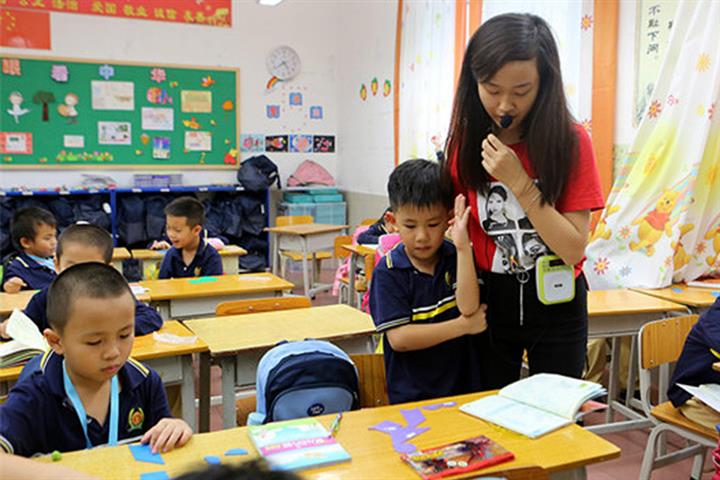 37% Less Income Is Price China’s Moms Pay for Investing Time Teaching Their Kids, Report Shows
37% Less Income Is Price China’s Moms Pay for Investing Time Teaching Their Kids, Report Shows(Yicai Global) Nov. 23 -- A new study has proved how Chinese children's education disproportionally limits mothers' income growth in comparison to other women and even fathers.
From junior high to high school, children's education pressures reduce their mothers' personal incomes by an average of 37 percent while fathers' incomes do not change significantly, according to a recent study sponsored by the Institute of Economics of the Chinese Academy of Social Sciences. The study was published in the Economic Research Journal.
Meanwhile, the load of higher education admissions cuts mothers' income by almost 19 percent, the report added. Mothers with higher education who work in non-state-backed industries, and those who rear boys or just one child are more likely to have their incomes impacted by their children’s education.
The study findings point to personal choices and fierce competition. Mothers tend to give up potential income to increase their family time, affected by the traditional concept of "men are breadwinners and women are homemakers," as well as Chinese families’ strong willingness to invest in their children’s education, the report suggests.
Regional differences prove a point about the culprit. Women's incomes correlate with regional imbalances based on the intensity of competition to enter higher education. In urban families, mothers tend to act as "education brokers" as the cost of giving birth carries on through the entire education process, according to the report.
Studies such as this may guide policy creation. Last July, the government introduced a new policy dubbed "double reduction" to cut the amount of time students spend on campus and to regulate the after-school tutoring sector more strictly.
The double reduction policy aims to correct the excessive investment in family education, which can ease students’ learning burden, help reduce education anxiety, and increase families' labor participation, especially that of mothers, said Wang Weitong, an author of the study and a researcher at Dongbei University of Finance and Economics.
But the effect may be mild as long as success at school is based on rankings. The policy cannot completely eliminate mothers’ anxiety about their children’s education, because the source of anxiety remains if a single standard is used to evaluate students, said Chu Zhaohui, a researcher at the National Institute of Education Sciences.
The study uses data offered by the China Family Panel Studies from 2012 to 2016, as well as the 2010 census, and the 2005 national sample census.
Editor: Emmi Laine, Xiao Yi